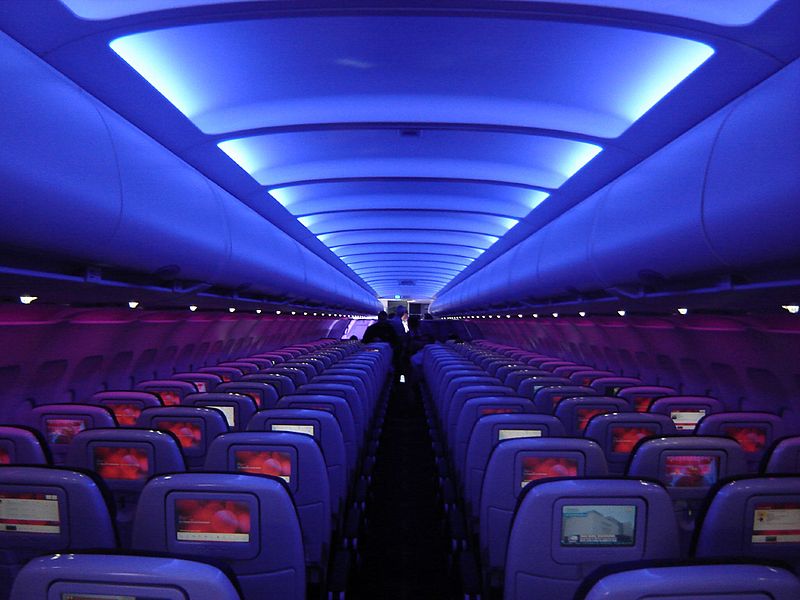Virgin Spends $1.4 Billion On Super-Efficient, Ultra Quiet Jet Engines
BY Ariel SchwartzToday

The airline industry is run by fossil fuels. Planes use massive amounts of jet fuel to get into the sky, and solutions to change that are few and far between. Plug-in airplanes aren’t nearly as practical as plug-in cars, and biofuel use is just catching on (the U.S.-based Air Transport Association just approved a fuel blend of up to 50% organic waste and non-food material earlier this month). But Virgin America isn’t waiting for major innovation in the biodiesel sector; the company this week announced a $1.4 billion order for ultra fuel-efficient engines.
“This is one of these significant breakthroughs in technology and engine efficiency that come along once every 10 to 15 years,” David Cush, Virgin America’s CEO, tells Fast Company.
The engines, developed by CFM International (a collaboration between French aircraft engine-maker Snecma and GE), can reportedly save $1.6 million in fuel costs per airplane annually, cut CO2 emissions by 15%, slash nitrogen oxide emissions by 50% compared to current requirements, and add up to 400 miles of extra range. And there’s a bonus for airport-goers: The engines cut noise by up to 15 decibels–the equivalent of making a jack hammer operate as quietly as an alarm clock, according to Virgin. It’s an advancement in almost every aspect of plane engine design.
Virgin will be the first airline to use the LEAP engines; they will power 30 current generation Airbus A320’s and 30 new Airbus A320neo’s starting in 2016.
Does it make sense for Virgin–the first airline to complete a biofuel-powered flight–to spend so much money on efficiency versus fuel innovation? The simple answer is that Virgin doesn’t have to choose; The company is aiming to use 10% biofuel in its aircraft by 2020. The most successful biojet fuels will be “drop-in” fuels, or fuels that can be used with existing aircraft engines.
“[Biofuels] are the next big quantum leap. I think we’re at the point where this technology is going to move forward and be heavily commercialized,” says Cush.
In the event of a fuel price spike, Virgin may ultimately be more prepared than most airlines–especially if it can combine its efficient engines with drop-in biofuels. And ultimately, that may save Virgin from having to implement some of the nightmarish service cuts and exorbitant fees that other airlines are already adding.
“Once this engine is in service, once people see the savings are real, I think we’ll see a long line of people wanting them,” says Cush. “We’ll be looking backward at everyone in line behind us.”